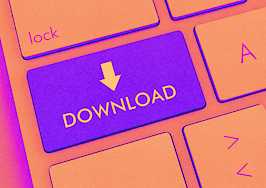In these times, double down — on your skills, on your knowledge, on you. Join us Aug. 8-10 at Inman Connect Las Vegas to lean into the shift and learn from the best. Get your ticket now for the best price.
This article was last updated May 16, 2023.
Lack of a down payment is the No. 1 obstacle blocking first-time buyers from purchasing a home, but it can be equally challenging to existing homeowners who may be forced due to circumstances. Even more importantly, it’s a powerful tool the entire industry can use to continue to rise in homeownership among Black Americans, which, while improving, is still at only 44 percent.
On this week’s show, Rob Chrane, the founder and CEO of DownPaymentResource.com (DPR) and the 2011 winner of Inman Innovator of the Year, explains how you can put down payment assistance programs to work in your business. Here are some highlights from this in-depth interview that we strongly recommend you watch.
What is down payment assistance?
According to Chrane, down payment assistance is “money to help homebuyers get into a home,” by helping them accumulate their down payment and closing costs. These programs, as Chrane mentioned, are administered by federal, state and local housing finance agencies, nonprofits and employers.
What blocks buyers from using down payment assistance?
First and foremost, many consumers believe that they must have a 20 percent down payment to purchase a home. They’re unaware that FHA and other lenders have programs with down payments as low as 3.5 percent. Moreover, only a few agents and brokers know that these programs can be coupled with down payment assistance.
Help for current homeowners as well
While 64 percent of the down payment assistance programs do have a first-time buyer requirement (i.e., you haven’t owned a property for three years), 36 percent don’t.
This can be a real boon to homeowners who are forced to sell right now, especially those who would benefit from down payment assistance to purchase a less expensive property. (They will need a minimum FICO score of approximately 640-660, and in some cases, 700.)
Types of programs available
When I searched for programs for my brother’s house in California, there were 25 programs and up to $125,000 in down payment assistance available. (Another family member’s home in Las Vegas had 13 programs.)
Here’s what came back in the search. The 25 programs from the search above can be grouped into the following categories.
Down Payment Assistance (DPA) from federal, state and local agencies
According to Chrane, about 77 percent of the available programs provide money towards the down payment itself or closing costs. The amount typically ranges between 3 to 7 percent of the mortgage amount and is secured with a second mortgage usually requiring no monthly payments and zero percent interest.
The loan is not due until the buyer sells or refinances the property and is referred to as Deferred Payment Arrangements (DPAs). These include forgivable DPAs, and they’re available to both first-time buyers and current homeowners.
The programs for this particular property ranged from 4 to 7 percent of the first mortgage amount that’s forgivable after three to five years. On a $300,000 loan, that’s $12,000 to $21,000. Some of these programs have no income limits which means they can be used on higher priced properties.
Grants — free money, really!
According to Chrane, grants account for only about 5 percent of the down payment assistance programs.
Nevertheless, this particular property was eligible for five different grant programs including one from the Golden State Finance Authority of up to 4 percent of the mortgage amount, two from the Southern California Home Financing Authority, and two grant programs from local Realtor associations.
Mortgage Credit Certificates — if you can find one, these are gold
In order to offer a mortgage certificate, a state or local finance agency must obtain bonding authorization. These are available in approximately 40 states. “It’s a true tax credit, as opposed to a tax deduction,” Chrane explained.
Just to give an example, Chrane asked us to assume that the borrower has taken out a $200,000 loan at a 4 percent interest rate. The finance agency can offer up to 25 percent of the interest amount the borrower paid as a tax credit. In this case, the borrower would pay $8,000 in interest the first year.
The borrower could deduct up to $2,000 (25 percent) as a credit against their total tax due and still take the remaining $6,000 they paid in interest as a tax deduction. The program stays in place for the life of the loan.
Lease-to-own matching programs
The Federal Home Loan Bank (FHLB) offers two different lease-to-own programs: the Individual Development and Empowerment Act (IDEA) and the Workforce Initiative Subsidy for Homeownership (WISH). These programs are available across the country and help renters transition to becoming homeowners through a lease-to-own program.
For this particular property, borrowers were eligible for a 4-to-1 matching grant up to $22,000. There were two options. Borrowers could elect to save as much as possible for up to 10 months. The program would pay them $4 for every $1 they saved.
The second option was a lease-to-own program that lasted for up to three years, again matching the borrower’s contributions up to $22,000 on a 4-to-1 matching grant.
Special programs for firefighters, military and school employees
Many of the programs discussed above are specifically targeted to firefighters, the military and school employees. The goal is to help individuals who serve their local communities.
Layering — how to get even more money!
Many down payment assistance programs can be “layered,” or in other words, combined with other programs. For example, one borrower might qualify for assistance as a teacher, and the other borrower could qualify for a forgivable second mortgage with the deferred payment program mentioned above. These programs could then be combined with a mortgage certificate.
One very creative agent in Seattle has layered as many as six programs to help her buyers purchase in the very competitive Seattle market.
From new agent to rockstar in only 24 months using down payment assistance
Chrane was recently on a panel with a 28-year-old agent who had been in the business for almost two years and had closed 80 transactions, 46 of which had down payment assistance. Chrane asked what had attracted her to the program.
She had heard about a local community program that works to help buyers with their down payments and thought it was too good to be true. She located a loan officer who knew about the program and ultimately used it to close on her home with her husband. At that point, she decided to make down payment assistance a cornerstone of her business.
New marketing program from DPR to assist agents
DPR has always been free to consumers and agents. Many MLSs have incorporated it into their listings to show which types of programs are available for each property. Until this point in time, however, there wasn’t a program designed to help agents market using this very valuable service.
DPR has just launched Down Payment Connect to keep you and your clients up-to-date on the various programs available in your area. The service provides you with a personalized landing page and URL that you can use online, in print and on social media.
When a lead wants to learn more, they type in their contact information. The lead is delivered immediately to your inbox so that you can contact them to discuss the program.
If you work with buyers, remember that 84 percent of the properties qualify for down payment assistance, 36 percent of all programs do not have a first-time buyer requirement, and you can layer together programs to help even more buyers fulfill their dream of becoming homeowners.
Bernice Ross, president and CEO of BrokerageUP and RealEstateCoach.com, is a national speaker, author and trainer with more than 1,000 published articles. Learn about her broker/manager training programs designed for women, by women, at BrokerageUp.com and her new agent sales training at RealEstateCoach.com/newagent.













